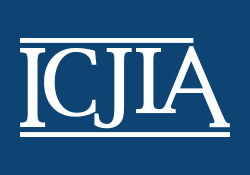# CHRI
The Illinois State Police maintains a database (Computerized Criminal History, or CCH) of individually identifiable criminal history record information (CHRI; pronounced "cry"). Typically both the system and the data it contains are referred to as CHRI. The Illinois Criminal Justice Information Authority (ICJIA) Arrest Explorer provides an aggregated version of this database.
# Illinois CHRI system
TIP
For more authoritative and detailed information on CHRI, please refer to CHRI User's Manual (opens new window) published by the Illinois State Police.
The Criminal Identification Act [20 ILCS 2630 (opens new window)] defines the process of collection and handling of criminal history record information. The Criminal Identification Act mandates the Illinois State Police serve as a central repository of criminal history information, to which all other criminal justice agencies report their interactions with offenders.
The following excerpt from CHRI User's Manual (opens new window) offers the scope of criminal history relevant to the Illinois CHRI system:
"Illinois law defines criminal history as data identifiable to an individual and consisting of descriptions or notations of arrests, detentions, indictments, information, pretrial proceedings, trials, or other formal events in the criminal justice system or descriptions or notations of criminal charges and the nature of any disposition arising there from, including sentencing, court or correctional supervision, rehabilitation and release." (Ch. 1, p. 1)
# ICJIA's access to CHRI data
Based on a Memorandum of Understanding between the Illinois State Police and ICJIA, ICJIA is allowed access to CHRI data "for research, evaluative purposes, or statistical activities."
The access is granted to allow ICJIA to fulfill its mandate to act as "a central repository and clearing house for federal, state, and local research studies, plans, projects, proposals, and other information relating to all aspects of criminal justice system improvement and to encourage educational programs for citizen support of State and local efforts to make such improvements" [20 ILCS 3930/7 et seq. (opens new window)].
While ICJIA is authorized to access CHRI data "for its research, evaluative and statistical activity needs," this access is granted with a set of specific requirements. One such requirement most relevant to Arrest Explorer is that ICJIA shall not publish statistics derived from CHRI data "when the total of arrests, charging decisions, convictions, or sentences is less than ten on a state, county, or local level." At ICJIA, this particular requirement is internally known as the "less than 10" rule.
NOTE
Please refer to the Preparing Arrest Explorer Data section of the Data page to learn more about how Arrest Explorer prepares the data to serve while remaining compliant to the terms of the Memorandum of Understanding.
In particular, read the Privacy Protections of the Data page to see how Arrest Explorer copes with the "less than 10" rule.
For all practical purposes, ICJIA Research & Analysis staff rely on a local copy of the Illinois State Police's CHRI ad hoc database. Direct access to the local database is also limited to only a small number of staff members. Any research project that involves CHRI data conducted, sponsored, or supported by ICJIA must obtain institutional review board approval.
# Updating CHRI data
ICJIA updates its local copy of CHRI data twice a year with a set of SQL scripts manually executed by the ICJIA Research & Analysis database administrator.
These updates add, revise, and sometimes remove (notably as part of the statewide expungement of marijuana convictions) records.
The first update takes place in the first quarter, generally in late February or early March. The precise date depends on the database administrator's schedule and workload. At this time, all CHRI records are updated, from the first recorded arrest in the CHRI system through arrests occurring on December 31st of the prior year.
The second update takes place in the third quarter, sometime in late August or early September. At this time, only recent (from the year 2000 through June 30th of the current year) records are updated. Please note that the meaning of "recent" may change.
Notice of Federal Funding and Federal Disclaimer
This website is funded through a grant from the Bureau of Justice Statistics, Office of Justice Programs, U.S. Department of Justice. Neither the U.S. Department of Justice nor any of its components operate, control, are responsible for, or necessarily endorse, this website (including, without limitation, its content, technical infrastructure, and policies, and any services or tools provided).
